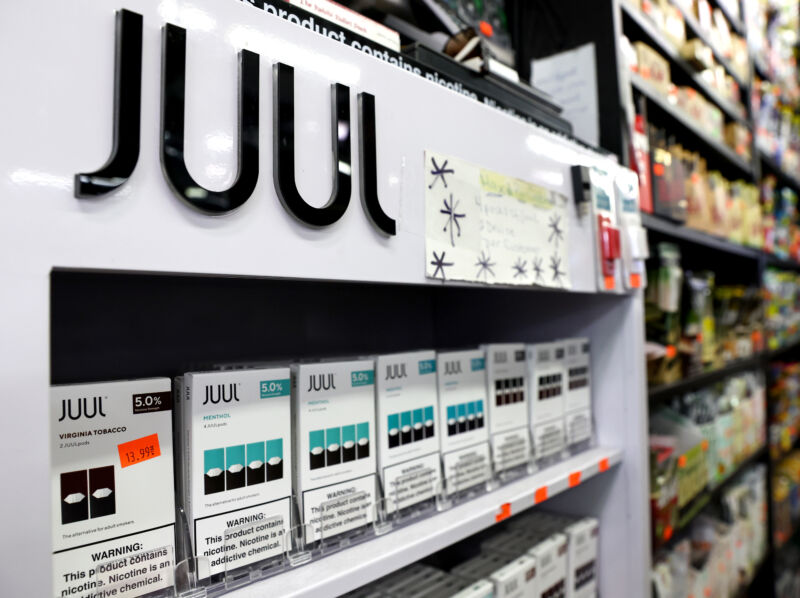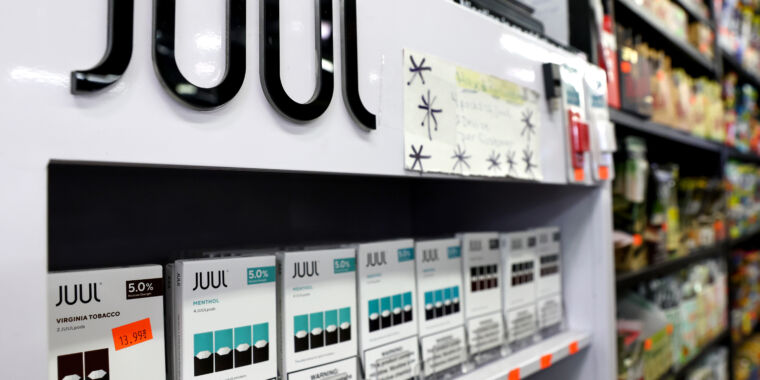
With his company going up in smoke, e-cigarette giant Juul filed an emergency motion on Monday to halt the Food and Drug Administration’s decision to allow the company to market one of its products in the U.S. it actually goes bankrupt.
The decision was leaked to The Wall Street Journal last Wednesday, June 22, and the regulator made the decision public on Thursday. On Friday, a panel of judges from the federal appeals court granted Juul a temporary administrative suspension, allowing the company to continue selling its products while the court reviews Juul’s emergency request to halt the FDA’s decision. Juul had until Monday afternoon to submit his petition. The administrative suspension is in no way based on the merits of Juul’s argument, the judges noted.
Meanwhile, The Wall Street Journal reported on Friday that in addition to fighting the FDA’s denial, Juul is also considering filing for bankruptcy. The report identifies unnamed individuals who are familiar with the case. Juul did not immediately respond to Ars’ request for comment on a possible bankruptcy filing.
On Monday, minutes before the noon deadline, Juul filed an emergency request requesting an extension of the FDA’s marketing denial pending further review. The FDA now has until July 7 to respond to Juul’s petition before the court decides on the fate.
Process in question
In its petition, Juul argued that it was falsely vilified for fueling the youth vaping epidemic and that the FDA denied its approval while under political and financial pressure to do so from multiple lawmakers. While the FDA said its denial was based on insufficient toxicology data, Juul argued that the data the FDA requested “was there in the [Juul’s] original submission”, although all details regarding the data in question have been removed from the petition.
Juul also claimed that the FDA judged its more than 125,000-page authorization request differently than competitors’ requests. Finally, Juul complained that the FDA did not give the company a chance to respond to concerns about insufficient data before announcing its decision. The company said it learned of the FDA’s decision through the Wall Street Journal leak last Wednesday and that the news was causing chaos for its company and customers.
Overall, the company argued that the FDA had overlooked its data and denied its authorization based on an “arbitrary regulatory process”, which would leave the company irreparably injured and “eventually blindfolded”. [Juul’s] company.”
The FDA has until July 7 to file a response. Commenting on the Journal, Mitch Zeller, former director of the FDA’s Center for Tobacco Products, who retired in April, said the regulator’s decision was based solely on the strength of Juul’s application, not political pressure. “This was a scientific assessment conducted by subject matter experts,” he said. “That’s how the system should work.”

